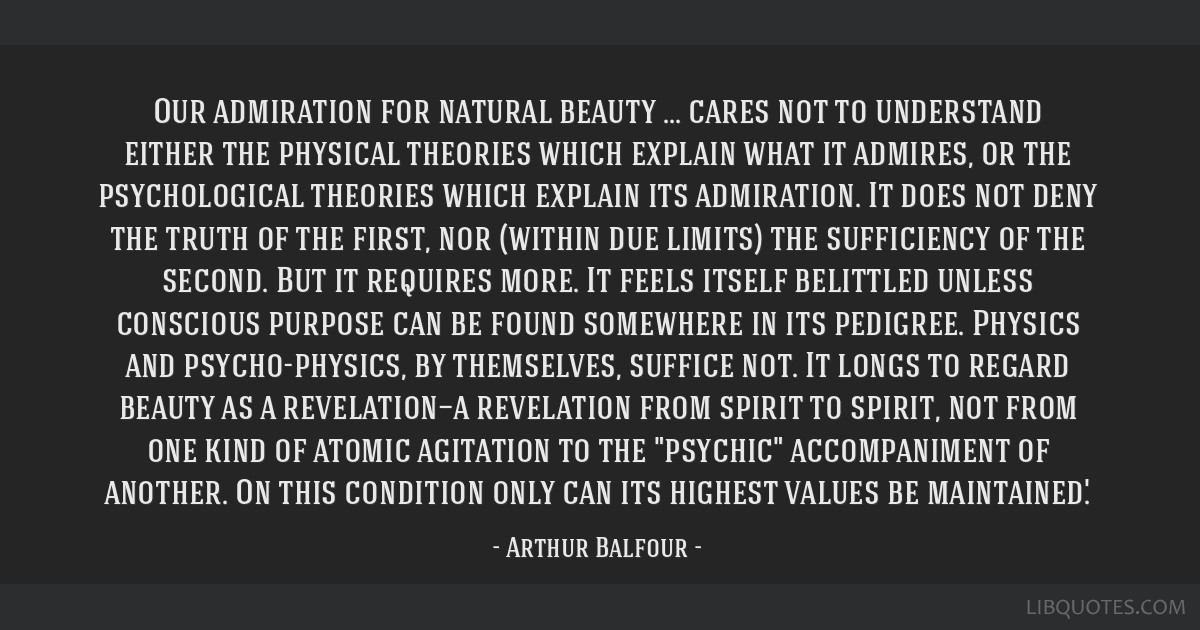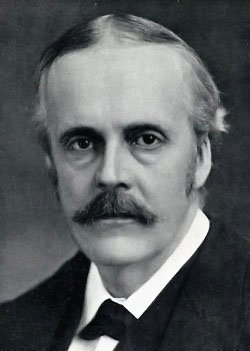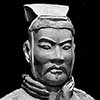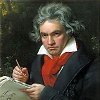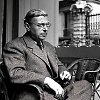Our admiration for natural beauty /.../ cares not to understand either the physical theories which explain what it admires, or the psychological theories which explain its admiration. It does not deny the truth of the first, nor (within due limits) the sufficiency of the second. But it requires more. It feels itself belittled unless conscious purpose can be found somewhere in its pedigree. Physics and psycho-physics, by themselves, suffice not. It longs to regard beauty as a revelation—a revelation from spirit to spirit, not from one kind of atomic agitation to the "psychic" accompaniment of another. On this condition only can its highest values be maintained.'
Theism and humanism

